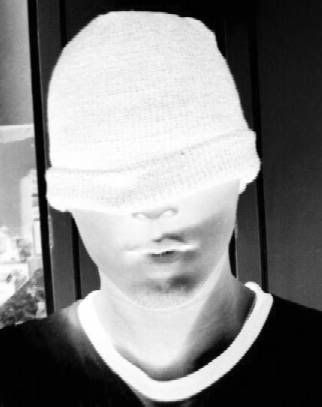
When one works in a huge government hospital such as PGH, you'd get used to see people dying everyday. Two years ago, when I was still a medical clerk--- that was when I witnessed a patient dying for the first time. I watched as the resuscitation team tried to revive him, but after 20 minutes, resuscitative measures were stopped since the patient remained flatlined. The feeling was hard to describe--- it was an odd mixture of excitement, curiosity, fear, anxiety, pity, and sadness. I did not know the patient personally, nor did I know the relatives, so that feeling of sadness was short lived. Still, the moment was unforgettable. It's like being a spectator, watching God's work in this theater we call life. As much as the joy I've felt upon witnessing for the first time a baby being born, upon witnessing a human being begin his life--- I felt as much sadness as I see through my own eyes how a person's life is taken away from him.
In the hospital where I spent most duties during clerkship (we rotated at several hospitals then), we didn't have as much patients as PGH--- maybe there's less than 1/3. That's not necessarily a bad thing. We got to learn more about our patients, we had more time to study about their cases, and because there are fewer of them, we got to know them better--- so much, in fact that i still keep in touch with some of them, and I considered them as my friends. A patient even told me once that she considered me part of their family.
With the degree of closeness that I had with my patients and their families, you could imagine the sadness that I felt when I first witnessed a patient of mine dying. It's like having a family member pass away. You feel your world crumbling. You're willing to do anything to prevent that from happening. I was one with the family's sorrow. As clerks, we used to kid around that we didn't want the patients assigned to us to die because we didn't want to make a death protocol, which was very tiresome to make since it is a legal document. But deep inside, we knew it was more than that. We didn't want to lose someone whom we considered as part of our family.
As with anything you experience too often, the excitement I first felt when I was part of the team reviving a patient began to wane. Resuscitative measures became just work--- emergent and vital, but it was still work. It is a part of our job, with the excitement slowly disappearing. The sadness remained, however, each time we failed. Sadness for the patients and their families, and also sadness because we can't help but feel like failures, even though we knew that we did everything that we could do.
Upon internship, the excitement and feeling of urgency of resuscitation was almost gone. We didn't just have patients dying everyday---- we had MULTIPLE patients dying everyday. DEATH became tiresome, so ordinary, so boring. Resuscitation became tedious, but we all knew we still had to do it properly, it was part of our job description to save lives after all. But as I look at my co-interns and residents, as well as the nurses, it was evident that they were feeling the same was that I was feeling. Reviving a patient seemed to be a generic job, not similar to writing charts, inserting IV lines, doing blood extractions. It seemed like just an ordinary job that we have to do. Gone is the excitement I used to see in everyone whenever a patient is said to have "coded", wherein the room comes alive, bursting with tension and enthusiasm, when every single person in the room becomes very animated. After resuscitative measures are done, whether successfully or unsuccessfully, everyone goes back to what they were previously doing, as if nothing happened.
The loneliness I used to feel whenever a patient of mine dies seemed to have vanished also. Since we were given so many patients at a given time, I rarely have time to get to know my patients and their families. Sure there are rare occasions when patients are admitted for a very long time so I eventually get to know them. But most of the time, because of so many things to do, I just do the orders. By the time we get things done, it's already time to go home. There's rarely time for bonding with patients. When my patients die, I no longer feel sad--- the very same way one doesn't really feel sad when a stranger dies. One may feel some fleeting pity, or one may be shocked, but he won't be that affected, as opposed to having a family member or a close friend die.
In a way, that's a good thing. It's common knowledge that doctors shouldn't get too attached to their patients, else it could jeopardize their work, especially with the way they deal with their other patients. Still, if we don't get to form a bond with our patients, the humane part of being a doctor disappears. It would seem like we are tinkering with machines, and not with people. After treating a patient, successfully or unsuccessfully, we just move on to the next patient to get our day job done. Being humane is an integral part of a service oriented profession. Without it, it would be erroneous to call ourselves good doctors.
Before internship ended, I got to know two of my patients very well, including their families. I guess it's because they were admitted at the wards the whole time i was assigned there, unlike my other patients who were admitted only for a few days. During my last week of internship, I looked forward to seeing those patients and their families, because it was as if I was visiting a family member or a good friend whenever I talk to them. I guess that shows that we can still be humane even in the most toxic situations. I'll be going to PGH later this week to fix some papers (clearance, etc.). Before i go home, I have to see those ex-patients of mine to see how they're doing. Maybe chat with them for a little while. It won't feel like work... it's like seeing an old friend, and like coming home to family after all.








No comments:
Post a Comment